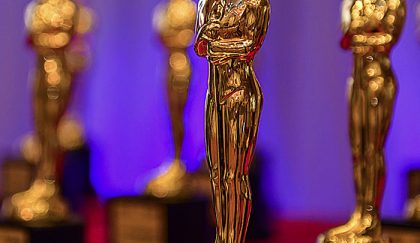How the 2017 Oscars Provide Insights into the Role of Social Media

The 2017 Academy Awards on Sunday, February 26 provided a number of insights into the current political, social, economic, and cultural climate. Like the Olympics or the Super Bowl, the Oscars have a unique position as a major televised event. Such events heighten audience participation and create a forum for commentary on relevant, hot topic issues. More specifically, the Oscars revealed key aspects of the continuously transformative role of social media.
1. The Risks of Live-Tweeting
Plenty of brands and public figures have faced the ire of the internet when they post or tweet something as innocuous as a typo. This year’s Academy Awards gaff, however, showcased the potential worst-case scenario of social media engagement. When Warren Beatty mistakenly announced La La Land as the winner for Best Picture, the official Academy Awards twitter reacted accordingly. The tweet was swiftly deleted and replaced with the actual winner, Moonlight, as soon as it was revealed that the envelopes for Best Actress and Best Picture had been accidentally swapped. The Academy’s social media team was not clued-in to the award team, and therefore reinforced the televised mistake through their first tweet.
Social media quickly eviscerated the awards show for the blunder, virally sharing memes and comparisons to the hotly contested 2016 Presidential Election, and even this year’s Super Bowl. The Oscars will likely survive the embarrassment and memes tend to have a limited shelf life. Smaller brands, on the other hand, should take advantage of Sunday night’s lessons learned about campaign preparation and management. Live-tweeting is an excellent form of social media engagement; it gives your brand relevance, time to saturate an audience, and reinforces a perception of active involvement.
At the same time, brands should know how to manage the risks of the platform, including establishing processes for copy editing and approval. Understandably, time is the key factor in live-tweeting; the sooner you can react or comment on an event the better. But brands have to balance timeliness to accuracy. Whether it’s a media company mistaking Whoopi Goldberg with Oprah Winfrey, or Delta learning the hard way that Ghana does not have giraffes, brands run the risks of damage when they do not have the proper management processes in place.
2. Ad Opportunities are Evolving
ABC’s telecast of the Oscars drew 22 million Facebook and Twitter interactions across 8.3 million unique social media accounts, topping the Sunday entertainment shows for the day, including the Daytona 500. The Oscars continue to draw large audiences and larger potential for social media advertisements. When you think of big events and advertising, most people think of the Super Bowl. However, according to a report by University of Detroit Mercy professor Dr. Mike Bernacchi, advertisers now pay more per viewer for ad slots during the Oscars than the Super Bowl. There are fewer Oscar viewers than Super Bowl viewers, but the economics of major television events has shifted.
For the film industry, social media has become invaluable to upcoming film promotions. According to Nielsen’s Moviegoing Report,moviegoers said “that if they notice an online ad for a movie they’re interested in, 75% would click on the ad, and 81% would search for more information about the movie.” More consumers are relying on digital “word of mouth” to make their movie-watching decisions, and Oscar-nominated films are filling spaces on social media to reinforce those interactions.
The Oscars also affect the luxury advertisement industry. Luxury brands often avoid ad campaigns on social media to maintain the perception of exclusivity. However, the Oscars present an ideal opportunity to promote their products and their elite status. Luxury brands frequently associate with celebrities and the wealthy. When those valuable relationships are present on the red carpet–whether through evening gowns or watches–luxury brands use social media to broadcast and reinforce their luxury status.
3. People Still Want Meaningful, Relevant Engagement
Film and television provide creative insights into the present, reflections into the past, and hopes for the future. The Oscars, since it is an annual event, often capitalizes on the opportunity to review some of the most impactful and sensitive moments of the past year. The hosts poke fun at politicians, awardees take time in their acceptance speeches to talk about current issues, and audiences make guesses about which award-worthy stories were the most meaningful.
The Oscars are a pop culture staple, and it makes sense that social media is now an inextricable part of the event. The level of commentary (and criticism) on social media this year is indicative of the fact people still want meaningful engagement online with the stories they consume on screen. The surprise twist at the end of the night–and the tweets that ensued–showed that people will turn to social media to express themselves about events, films, and stories that are important to them. Brands would be wise to reflect that desire in order to maintain a sufficient level of relevance and adaptivity.
The Oscars as a Social Media Snapshot
As social media continues to affect everyday marketing, it’s important to see how major events like the Oscars can pull forward key insights about your brand’s social media impact. While not every brand can capitalize on the Oscars buzz, every brand can benefit from observing consumers’ conversations and behavior on social media. Look at what competitors are doing during large events, or how target audiences share content as these events unfold.
Want to learn more about social media engagement? You might be interested in our research on effective social media strategies.
